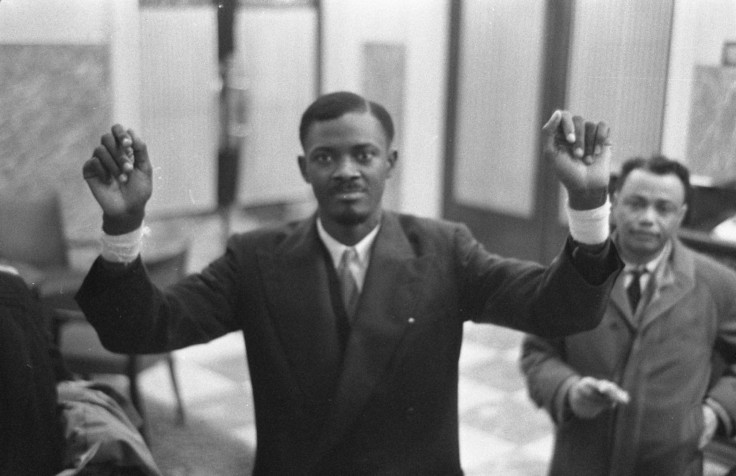An African JFK: DR Congo To Name City In Honor Of Murdered Independence Hero Patrice Lumumba

The Democratic Republic of Congo plans to name a city to honor Patrice Lumumba, the independence figure who was assassinated more than 50 years ago, reported the Associated Press.
The new city, to be called Lumumbaville, will comprise several existing communities in the Kassai-Oriental province (Lumumba’s birthplace) in the center of the huge nation, about 930 miles from the capital Kinshasa.
Construction will commence next year.
Lambert Mende, a spokesman for the government, said the city will "honor the memory of a great Congolese statesman."
BBC reported that Lumumba remains an extremely popular figure in the country and that the Congolese government hopes Western donors will help finance its construction and turn it into a tourist attraction.
Lumumba, who was elected the first prime minister of Congo in 1960, following the country’s independence from Belgium, is widely believed to have been murdered the following year by either U.S. or U.K. intelligence agents partially due to his close links to Soviet Russia.
However, his death at the age of 35, like the killing of U.S. President John F. Kennedy soon after, remains a mystery, with many conspiracy theories abounding.
"He wanted Congo to be the center of Africa, the center of development," his son, Raymond Lumumba, told BBC.
"So, he'll want it to be a modern town with all facilities."
Lumumba’s other son, Laurent, has praised the creation of the town after his father, but again pressed government authorities to investigate the murder.
Last month, Lord Lea, a member of the British House of Lords, claimed that a former U.K. intelligence officer named Daphne Park told him that Britain was behind Lumumba’s killing.
But Georges Nzongola-Ntalaja, professor of African and Afro-American studies at the University of North Carolina at Chapel Hill and author of “The Congo from Leopold to Kabila: A People's History,” placed the blame on Lumumba’s killing largely on the Americans.
In an essay published in The Guardian, Nzongola-Ntalaja called Lumumba’s demise the “most important assassination of the 20th century.”
“This heinous crime was a culmination of two inter-related assassination plots by American and Belgian governments, which used Congolese accomplices and a Belgian execution squad to carry out the deed,” he wrote.
“The assassination's historical importance lies in a multitude of factors, the most pertinent being the global context in which it took place, its impact on Congolese politics since then and Lumumba's overall legacy as a nationalist leader.”
Nzongola-Ntalaja also referred to Lumumba's assassination as the country's “original sin,” since Lumumba rejected tribal and ethnic divisions and called for unity among all Africans.
Since his death, DR Congo has been beset by repeated civil wars, ethnic conflicts and other senseless tragedies that have killed untold millions of people and prevented the state from developing into the kind of prosperous nation its huge wealth of natural resources should have provided.
© Copyright IBTimes 2024. All rights reserved.





















